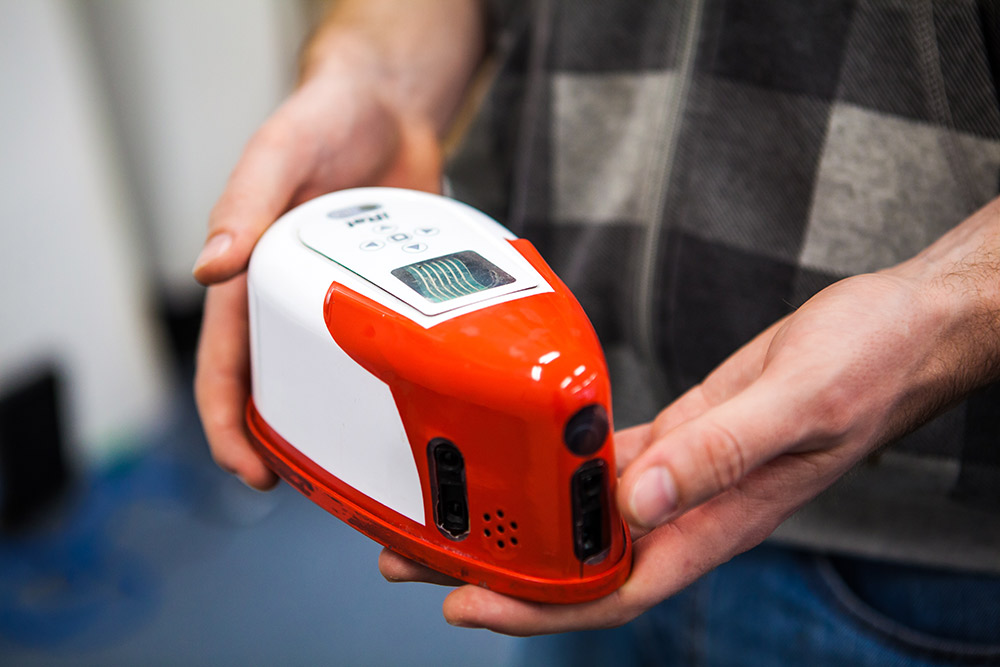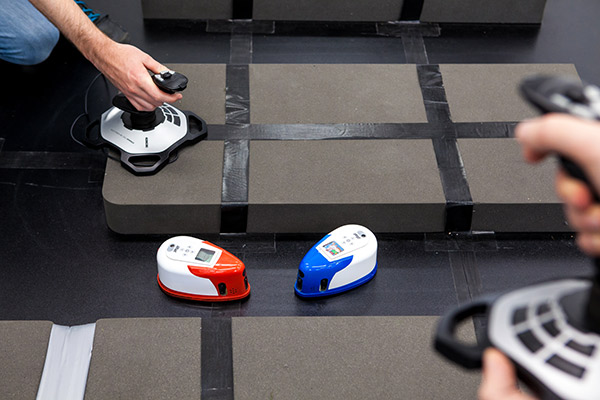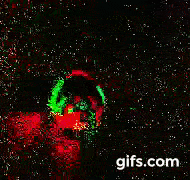Bio-inspired Robotics (iRat)

iRat (Intelligent Rat Animat Technology) is a robot designed for research in navigation, embodied cognition, and neuroscience. It is a collaboration between the research labs of Professor Janet Wiles and Professor Andrea Chiba (University of California, San Diego Temporal Dynamics of Learning Center).
Bio-inspired computational paradigms for artificial learning and intelligence are used as the basis for the modelling of the artificial thinking systems. Featuring elements with complex biological behaviours, these paradigms are used to empower autonomous robots with adaptive and reactive cognitive behaviours. The iRAT robot was developed to embody bio-inspired neural based cognition models. It is used to research neural, behavioural and information processing bases of complex and intelligent systems.
Dr Ola Olsson is researching the iRat and social robotics at UQ
Publications

- Heath, S., Ramirez-Brinez, C. A., Arnold, J., Olsson, O., Taufatofua, J., Pounds, P., ... & Chiba, A. A. (2018, October). PiRat: An autonomous framework for studying social behaviour in rats and robots. In 2018 IEEE/RSJ International Conference on Intelligent Robots and Systems (IROS) (pp. 7601-7608). IEEE. View PDF
- Ball, D., Heath, S., Wiles, J., Wyeth, G., Corke, P., & Milford, M. (2013). OpenRatSLAM: an open source brain-based SLAM system. Autonomous Robots, 34(3), 149-176. View PDF
- Wiles, J., Heath, S., Ball, D., Quinn, L., & Chiba, A. (2012, November). Rat meets iRat. In 2012 IEEE International Conference on Development and Learning and Epigenetic Robotics (ICDL) (pp. 1-2). IEEE. View PDF
- Heath, S., Cummings, A., Wiles, J., & Ball, D. (2011, December). A rat in the browser. In Australasian conference on robotics and automation. View PDF
- Ball, D., Heath, S., Wyeth, G., & Wiles, J. (2010, December). iRat: Intelligent rat animat technology. In Proceedings of the 2010 Australasian conference on robotics and automation (pp. 1-3). Australian Robotics & Automation Association. View PDF

Get in touch
For more information about this project, please get in touch:
Professor Janet Wiles
e: j.wiles@uq.edu.au

